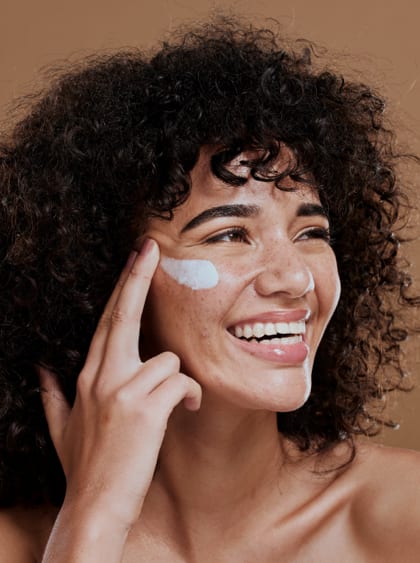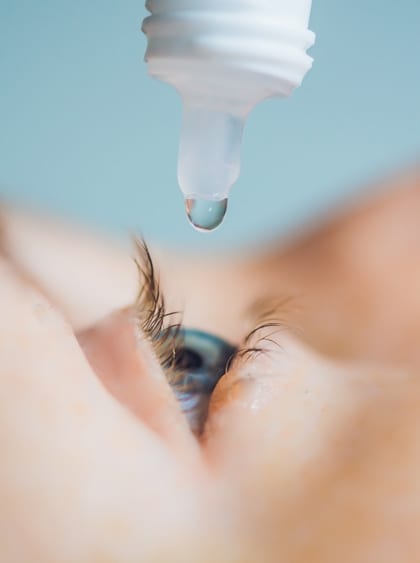When it comes to maintaining our eye health, proper nutrition plays a crucial role. While a balanced diet is essential, certain supplements can provide the extra boost your eyes need to stay sharp and healthy. At MEye Health in Burlington, ON, we believe in providing you with reliable information to help you take care of your vision. Let’s dive into the best supplements that support eye health and what they can do for you, including B12, B9, Omega-3, Lutein, Zeaxanthin, and Vitamin D!
The Top Supplements for Maintaining Eye Health
1. Vitamin B12 (Cobalamin): A Vital Vitamin for Optic Nerve Health
Vitamin B12 is crucial for nerve health, including the optic nerve.
A deficiency in B12 can lead to issues like:
Optic Neuropathy:
A deficiency in vitamin B12 can damage the optic nerve, which transmits visual information from the eye to the brain.
- Vision Problems:
Damage to the optic nerve may result in symptoms such as blurred vision, double vision. - Dry Eye & Eye Pain:
Vitamin B12 deficiency has also been associated with dry eye disease and eye pain, potentially due to damage to the corneal nerve layer.
Benefits of B12 for Eye Health:
- Helps protect the optic and may help the corneal nerves from damage
- Supports the transmission of visual information
- Prevents optic neuropathy, a condition that can be associated with vision loss
- Vitamin B12 plays a crucial role in reducing homocysteine levels in the body, supporting macular health and overall eye function. Studies have shown that individuals who reported taking vitamin B12 supplements had a 47% lower risk of developing age-related macular degeneration.
While B12 can be found in animal products like meat, eggs, and dairy, taking a supplement can be beneficial, especially for those on plant-based diets.
2. Vitamin B9 (Folate): For Healthy Blood Flow to the Eyes
Vitamin B9, also known as folate, is essential for maintaining healthy blood circulation. Proper blood flow is vital for nourishing the eyes and ensuring they receive the oxygen and nutrients they need to function properly.
Benefits of B9 for Eye Health:
- Reduces the risk of age-related macular degeneration (AMD), folate plays a role in DNA synthesis and repair, and deficiencies could potentially disrupt processes in the retina, increasing AMD risk.
- Supports overall cell growth and regeneration in the eye tissues
- Folate may help reduce the risk of exfoliation glaucoma, a condition that can lead to blindness.
Folate Deficiency in Eye Health:
- Folate deficiency can lead to optic neuropathy, a condition that can cause vision loss.
- Studies have also linked low folate levels to an increased risk of retinoblastoma (eye cancer).
You can get B9 from leafy greens, citrus fruits, and legumes. However, a supplement may provide the extra support your body needs, especially if your diet lacks these foods.
3. Omega-3 Fatty Acids: A Key Player for Optic Nerve Health
Omega-3 fatty acids are often praised for their heart health benefits, but they’re also essential for maintaining good eye health. Omega-3s help protect the optic nerve from damage, support retinal health, and reduce the risk of dry eyes.
Benefits of Omega-3 for Eye Health:
- Protects the optic nerve
- May reduce the risk of developing AMD, which can damage central vision.
- Reduces inflammation in the eyes
- Supports tear production for dry eyes
You can find Omega-3s in fatty fish like salmon, flaxseeds, and walnuts. If you don’t consume these foods regularly, an Omega-3 supplement can help keep your eyes healthy.
4. Lutein, Zeaxanthin, and Meso-Zeaxanthin: The Trio for Macular Health
Lutein, zeaxanthin, and meso-zeaxanthin are antioxidants that are naturally found in the macula, the part of your retina responsible for central vision. These antioxidants play a protective role by filtering out harmful blue light and neutralizing free radicals that can damage the retina over time.
Benefits for Macular Health:
- Lutein and zeaxanthin reduce the risk of age-related macular degeneration (AMD)
- Meso-zeaxanthin helps protect the macula from oxidative damage
- Improves visual acuity and glare sensitivity
- Reduces the risk of cataracts
Including foods like spinach, kale, corn, orange peppers, and egg yolks in your diet can provide these powerful nutrients. However, a supplement can help boost your intake for added protection.
5. Vitamin D: A Natural Shield Against Dry Eyes
Dry eyes can be a major discomfort, but vitamin D may help. Vitamin D has anti-inflammatory properties that support the tear glands and prevent dryness. It also plays a role in immune system regulation, which can help reduce the risk of autoimmune-related dry eye conditions.
Benefits of Vitamin D for Eye Health:
- Reduces inflammation in the eyes
- Supports tear production for dry eyes
- Enhances Corneal Epithelial Barrier Function which is the protective outer layer of the cornea the tears rest on.
Vitamin D Deficiency
Vitamin D deficiency has been linked to several eye conditions, including:
- Associated with conditions such as age-related macular degeneration (AMD) and diabetic retinopathy.
- Uveitis: An inflammatory condition of the eye
- Myopia: Some studies indicate a link between vitamin D deficiency and a higher risk of developing myopia (nearsightedness).
- Cataracts: There is some evidence linking vitamin D deficiency to posterior subcapsular (PSC) cataracts, though further research is needed.
You can get vitamin D through sun exposure, fortified foods, and supplements. If you’re not getting enough, particularly in the winter months, a supplement may be necessary.
6. Turmeric and Antioxidants: Fighting Inflammation for Better Vision
Turmeric, known for its active compound curcumin, is another great supplement for eye health due to its powerful anti-inflammatory properties. Chronic inflammation can damage the eye structures, so reducing it with antioxidants is crucial.
Benefits of Turmeric and Antioxidants for Eye Health:
Turmeric, particularly its active compound curcumin, shows promising benefits for eye health thanks to its powerful anti-inflammatory and antioxidant properties. These effects may support the prevention or management of several vision-related conditions, including glaucoma, diabetic retinopathy, and other inflammatory eye diseases.
Glaucoma
Research suggests that curcumin delivered via eye drops may help reduce retinal cell loss, which is an early indicator of glaucoma progression.
Diabetic Retinopathy
In diabetic patients, curcumin has shown potential in protecting the retina from damage caused by high glucose levels, a common complication of the disease.
Other Eye Conditions
Curcumin’s anti-inflammatory properties may also be beneficial in managing conditions such as macular degeneration, cataracts, and uveitis.
How Curcumin Works
- Anti-inflammatory: Curcumin helps inhibit inflammatory cytokines, which may reduce inflammation within the eye.
- Antioxidant: It combats oxidative stress and helps prevent DNA damage—both of which are contributing factors in many eye diseases.
- Neuroprotective: Some studies suggest curcumin may help protect retinal ganglion cells, which are vital for maintaining healthy vision.
- Fights inflammation in the eyes and surrounding tissues
- Protects against oxidative stress that can lead to cataracts and AMD
- Improves blood circulation to the eyes
In addition to turmeric, other antioxidants like vitamins C and E, found in fruits and vegetables, help combat oxidative stress and protect your eyes from damage.

What is the Best Supplement to Take for Your Eyes?
The best supplements for your eyes depend on your specific needs. If you’re concerned about macular degeneration, lutein and zeaxanthin are great choices. If you’re struggling with dry eyes, Omega-3s, vitamin D, and turmeric are fantastic options. For optic nerve health, B12 and Omega-3s are your best bet.
Overall, a combination of these supplements can help maintain overall eye health, but it’s always a good idea to consult with your healthcare provider before starting any new supplement regimen.
What Is the Healthiest Thing for Your Eyes?
The healthiest thing you can do for your eyes is maintain a balanced Mediterranean diet, stay hydrated, and avoid prolonged exposure to harmful blue light from screens. Additionally, regular eye exams are essential for detecting potential issues early. Don’t forget to protect your eyes from UV rays by wearing sunglasses!
What Is the Most Powerful Antioxidant for the Eyes?
Lutein and zeaxanthin are often considered the most powerful antioxidants for the eyes. These nutrients help neutralize harmful free radicals and protect the retina from damage caused by oxidative stress. They also filter out harmful blue light, helping reduce the risk of AMD and other vision problems.
Take Care of Your Eyes in Burlington!
Your eye health is important, and with the right supplements and regular eye exams, you can protect and preserve your vision for years to come. Schedule your annual eye exam today at MEye Health in Burlington, ON—we’re here to support your eye health every step of the way!






















